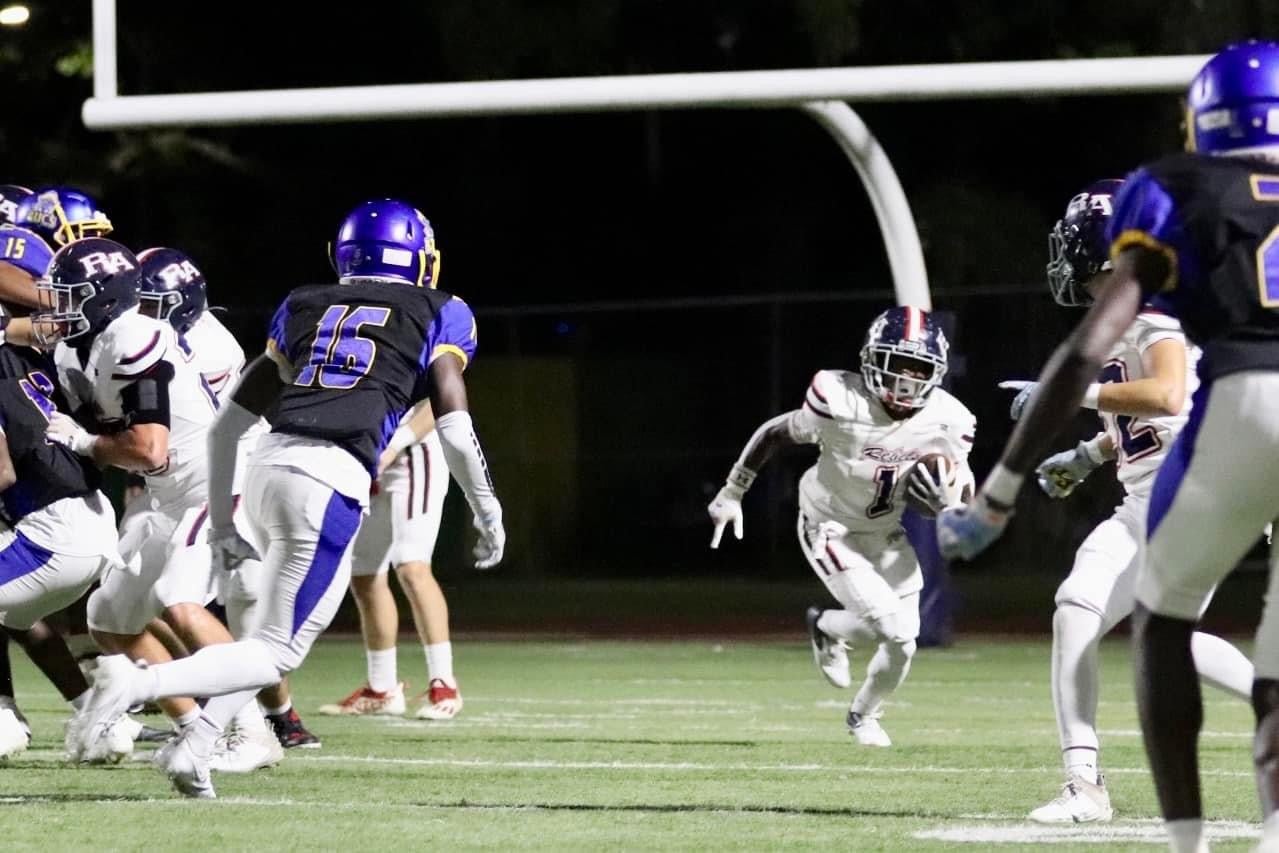From the Sidelines
Published 12:00 am Wednesday, June 21, 2000
MICHAEL KIRAL / L’Observateur / June 21, 2000
The year 2000 is the year of the dragon on the Chinese Zodiac calendar.
But the weekend of June 17-18, 2000 can go down in the books as the weekend of the tiger.
Saturday evening, the LSU Tigers were rallying from a 5-2 deficit to defeat Stanford, 6-5, in the College World Series championship game in Omaha, Neb. Approximately 24 hours later, Tiger Woods was putting thefinal touches on a remarkable 15-stroke victory at the U.S. Open at PebbleBeach. But how the Tigers and Tiger got to those moments were by twoentirely different roads.
For LSU, it was the story of comebacks. For the first 7 1/3 innings, theoutlook was bleak for the Tigers. Craig Thompson had given the Cardinal a4-2 lead in the fourth with a grand slam and the dominating duo of Jason Young and Justin Wayne had made it stand up, holding the Tigers hitless from the second inning on.
Then LSU’s seniors went to work. Stanford had just increased its lead to5-2 in the top of the sixth and was looking for more, loading the bases with two outs. Chris O’Riordan then ripped a line drive down the left fieldline. LSU team captain Blair Barbier dove to his left, knocked the balldown, got up and threw to first to nip O’Riordan by an eyelash. It’sprobably safe to say that if that ball gets by Barbier, there would have been no late inning heroics by the Tigers.
Barbier started those heroics with a home run to left with one out in the bottom of the eighth. Wally Pontiff walked and one out later, seniorJeremy Witten tied the game with a home run to left field.
Trey Hodges, another senior, came through in the top of the ninth, retiring the side in order. That set the stage for his senior battery mate, BradCresse, in the bottom of the inning. After Ryan Theriot had opened theinning with a single past third and Mike Fontenot walked, Cresse, in a 1- for-12 slump in the series, came through when it counted, lining a single to left. Theriot beat the throw home, starting the Tigers’ fifthchampionship dogpile in Omaha in the past 10 years.
It was not the first comeback of the season for LSU. This was a team thatlooked anything like a national title contender at the beginning of the season. There was a three-game sweep by Houston, a series loss toGeorgia to open SEC play and a five-game losing streak. The pitching staffwas getting shelled and injuries, including ones to Ray Wright and Cedric Harris, appeared to cripple the team.
But like a champion thoroughbred, the Tigers came on down the stretch.
LSU would win all 13 of its postseason games, capturing the SEC Tournament, NCAA Regionals and Super Regionals along the way. Those 13victories included a comeback from a 3-0 deficit against Southern Cal in the World Series and a three-run rally after losing a three-run lead against Florida State a game later.
For the other victorious Tiger over the weekend, there was no need for a comeback. After seeing his lead shrink to a shot Friday, Woods went on atear, pulling away to a tournament record six-stroke lead after 36 holes.
Ironically, shortly after Stanford lost Saturday, Woods, a Cardinal alum, had a triple bogey to trim his lead to five. But like his namesake, Tigerbounced right back, closing out the day with a 10-stroke lead, another tournament record.
Sunday was a tale of two tournaments – the rest of the field vying for second and Woods battling the record books and history. By the time theday was over, Woods had put on a remarkable display of golf. On a coursethat was one of the roughest in U.S. Open history and on which no otherbroke par for the tournament, Woods had become the first player in Open history to finish 72 holes at double digits – 12 under.
It was probably the most dominating performance in sports since Secretariat ran away with the 1973 Belmont. Woods finished with a 15-stroke victory, shattering both the Open record and the record for any major. At only 24, he has already won three of the four grand slams eventsand is almost certain to become the fifth player to win all four. He alreadyis the only player to capture the U.S. Junior Amateur, U.S. Amateur and U.S.Open.
To win in championship golf takes shotmaking, concentration, patience and imagination. Woods has shown to be at the top of the game in all fourcategories. How easy it would have been for him to lose his concentrationrunning away with the tournament Sunday. Yet, he still finished with abogey-free round. That’s how you shoot three rounds in the 60s in atournament in which only one of your pursuers (Hale Irwin) had as many as two.
To win a championship in baseball, it takes clutch hitting and solid pitching and defense. LSU showed all three Saturday. Hodges came in inrelief and pitched four innings of shutout ball to keep the Tigers in the game. In addition to Barbier’s stop in the sixth inning, right fielder RayWright went over the fence to take away a three-run home run by Edmund Muth in the third inning to keep LSU ahead 2-0. Barbier also saved a runwith a defensive gem in the first inning.
But it also takes a lot of heart and determination to win a title. Andbecause the Tigers, both LSU and Woods, demonstrated both over the weekend, they are national champions in their respective sports today.
Return To Sports Stories
Copyright © #Thisyear# Wick Communications, Inc.Best viewed with 4.0 or higher





